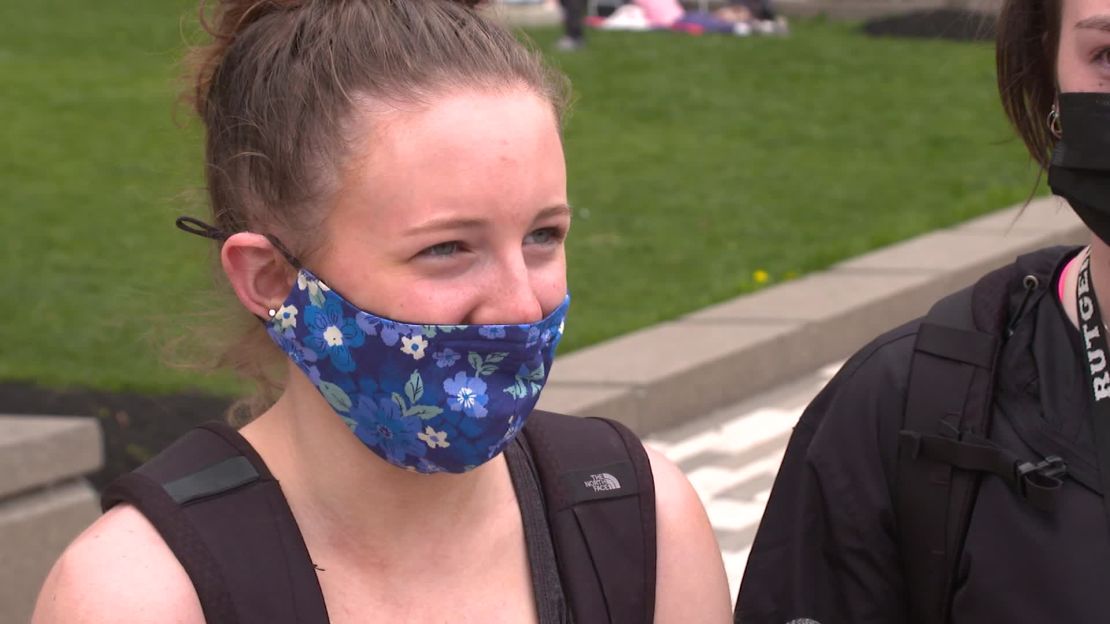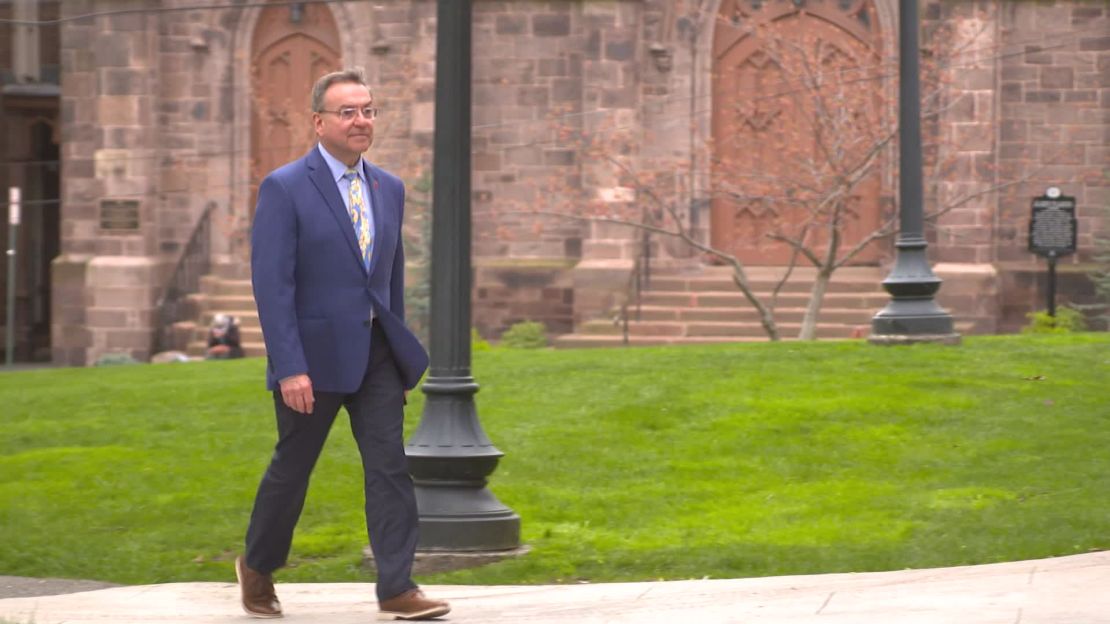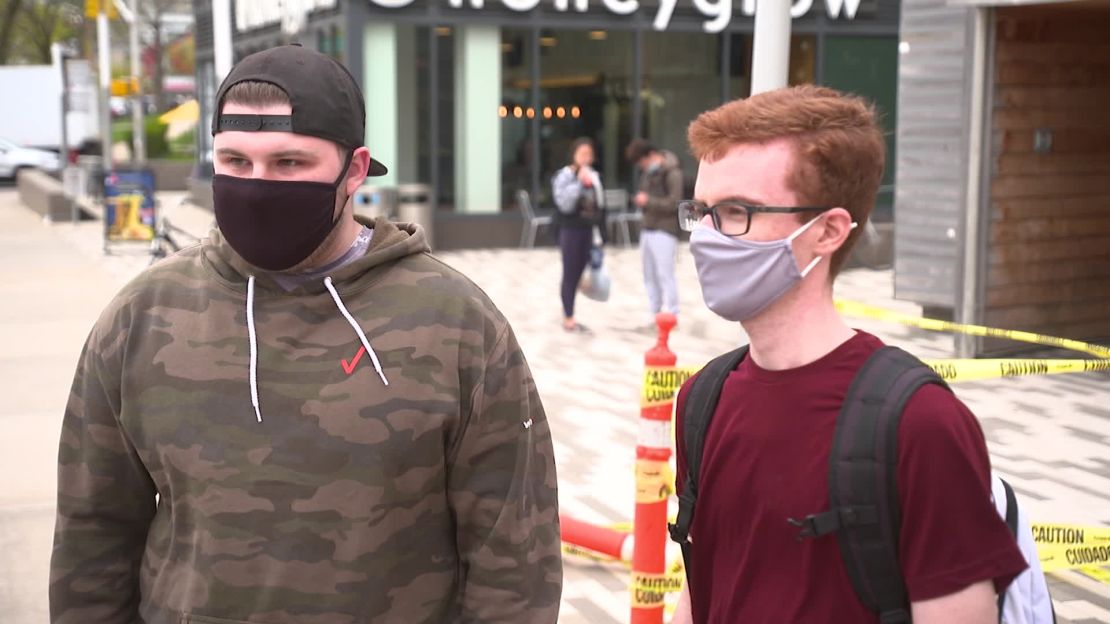Warm spring days usually bring students out to the sprawling grass-filled quad at Rutgers University in New Jersey. But on a recent visit, CNN found only a handful there.
Freshman Bella Fusco only knows college during the pandemic, but even so, she can see the void on campus.

“It’s definitely weird – not seeing that many people around,” she said. “It’s not the college experience that everyone was hoping for.”
Rutgers officials want to change that and the school became one of the first in the nation to mandate coronavirus vaccines for all students ahead of the fall semester.
“We feel vaccine is the game changer for us to bring back as many people as we can in September,” said Antonio Calcado, Rutgers University executive vice president and chief operating officer.
Mandating that students be fully vaccinated is the best way to return to a true college experience, he explained.
“They deserve to have the experience that they’ve been looking forward to throughout their career getting to college, and we want to give that back to them. We think that this is a small price to pay.”
Nearly 75 U.S. colleges and universities including Duke, Georgetown, New York University, Notre Dame and Syracuse are also now requiring student vaccines. The largest public university system, California State University, with more than 480,000 students, and the University of California system with more than 280,000 students announced their plans to require Covid-19 vaccines for all students on Thursday.
Calcado said the reaction at Rutgers has been largely positive.

“The response we typically get is along the lines of ‘If this is what it’s going to take for me to get back, I’m all in. I have no problem with doing it,’” he said.
Public and private schools across the country already require proof of vaccination against, for example, mumps and measles, allowing exemptions for medical or religious reasons.
And that sets a precedent for rules around coronavirus, said Dorit Reiss, a law professor at the University of California Hastings who focuses on issues related to vaccines.
“I expected some (schools) at least to consider vaccine mandates,” she said. “Vaccine mandates in education go back a long time and traditionally have been upheld by court, because they increase safety in areas vulnerable to outbreaks.”
Some schools are taking a different approach. The University of Colorado Boulder says it is encouraging vaccines but not requiring them for students at this time because they are being administered under the FDA’s emergency use authorization or EUA.
Reiss noted the law isn’t clear about whether a vaccine could be mandated under an EUA, but she believed the courts would allow the new rules.
State policies may also impact a school’s decision.
Florida Gov. Ron DeSantis issued an executive order banning businesses from asking to see proof of a Covid-19 vaccine, one day after Nova Southeastern University announced it would require vaccinations. The school says it is now reviewing the order.
“Not every university has the same power,” Reiss said. “So some universities are going to say, we’re not going to mandate it, and it might be the right thing for them. They might be in a low-risk area, they might be in a political environment where trying to mandate will lead to legislative pushback.”
Ohio State University is avoiding a mandate while saying it encourages everyone to get vaccinated as soon as they are able and that the vaccine has been proven safe and effective.
Other schools have yet to announce a vaccine policy for the next academic year.
At Rutgers, Calcado acknowledges the challenges created by introducing the mandate, including for its more than 8,000 international students.
“What we’ve committed to is getting them vaccinated when they come on campus,” he said. And that may include a second vaccination if students have been treated with one of the products not approved by the FDA.
“We are monitoring the situation by way of data from foreign vaccinations and trying to understand what the efficacy rates are. We’re monitoring whether you can have another inoculation if you’ve already been inoculated,” Calcado said.
He accepts that Rutgers may lose some students who are not comfortable getting vaccinated. But walking through a still-deserted campus, he says he has no regrets.

As she finishes out her first year at the school, Fusco is looking forward to a change. The vaccine, she says, “gives me hope that things will be more normal than they are now.”
John Hermitt, a junior, is also happy to get the vaccine ahead of the fall semester.
“I’m just happy to get back,” he said. “I’ll be able to see my friends again.”



